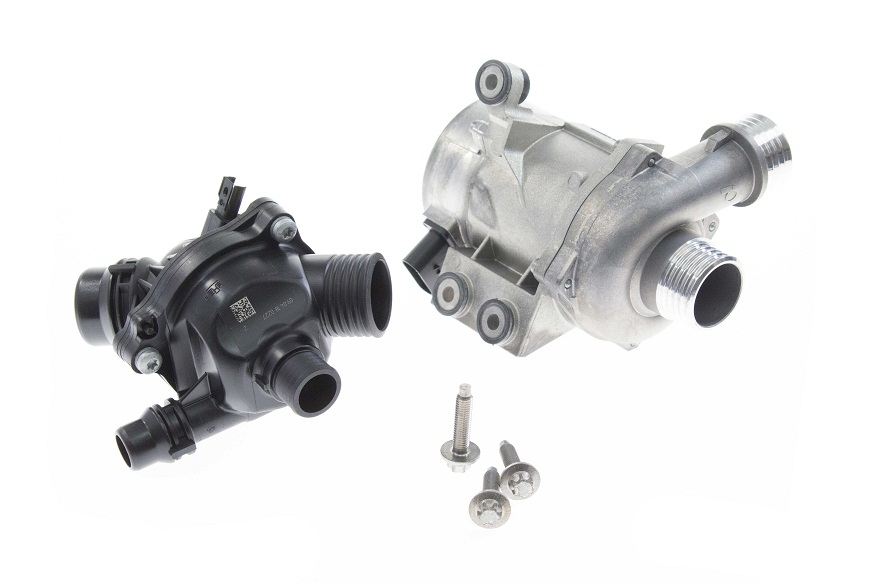
When it comes to moving high-viscosity fluids in manufacturing, not all pumps are created equal. Thick, sticky, or solid-laden materials often present challenges that can overwhelm other pump types. Enter the Progressive Cavity Pump — a robust, efficient, and adaptable solution that many manufacturers turn to for handling viscous materials.
This blog will explain the unique advantages of PC pumps, discuss why they excel with high-viscosity fluids, and provide insights into the applications where they truly shine.
What Are Progressive Cavity Pumps?
At their core, PC pumps are positive displacement pumps, designed to move fluids by channeling them through a sequence of small, contained cavities. These cavities form as the pump’s rotor turns inside a helical rubber stator, allowing the fluid to move consistently and without interruption.
What makes the PC pump unique is its ability to handle a wide range of fluids — from thin liquids to extremely thick materials — while maintaining a steady, low-pulsation flow. This flexibility makes PC pumps invaluable in industries like food production, oil and gas, paper manufacturing, and wastewater treatment.
Key Characteristics of PC Pumps
- Gentle on Fluids: PC pumps move fluids with minimal shear or turbulence, protecting delicate or sensitive materials during transport.
- Consistent Flow: Offers precision and consistent output with low pulsation, even for highly viscous or abrasive liquids.
- Highly Versatile: Handles both solids-containing and high-viscosity fluids without clogging or damage to the pump.
The Challenges of Pumping High-Viscosity Fluids
Dealing with high-viscosity fluids — such as adhesives, slurries, oils, or syrups — can be particularly difficult for traditional pump systems. These fluids resist flow, create immense friction within the pump system, and can lead to blockages and component wear over time.
Other pump types, like centrifugal or diaphragm pumps, struggle when the fluid’s viscosity increases significantly. For instance, centrifugal pumps are highly reliant on velocity, making them inefficient or even unable to operate when tasked with moving thicker materials.
Why High-Viscosity Manufacturing Demands More
- Consistency Matters: Many manufacturing processes require a uniform flow, especially for precision applications like dispensing adhesives.
- Material Integrity: Certain materials, like food pastes or cosmetic creams, lose functionality or quality when exposed to high shear forces.
- Reduced Downtime: Pump blockages or failures can bring the manufacturing line to a grinding halt, leading to costly downtime. Clearly, the right pump makes all the difference.
Why PC Pumps Are the Go-To Solution for High-Viscosity Fluids
When high-viscosity materials need to be moved efficiently and reliably, Progressive Cavity Pumps are unparalleled in performance.
1. Handles Extreme Viscosity Easily
PC pumps excel where others fail. Thanks to their positive displacement mechanism, PC pumps generate the force necessary to move fluids of any viscosity. Whether it’s thick sludge, tar, or molasses, a PC pump can efficiently transfer these materials without compromising flow rate or reliability.
2. Minimizes Shear Stress
Many pumps create high-shear forces that can damage fluid properties. This can be a problem in industries like food and beverage, where the texture and quality of ingredients are critical. The gentle pumping action of a PC pump preserves the consistency of these high-viscosity fluids, ensuring they retain their original characteristics.
3. Resists Wear From Solids and Abrasives
High-viscosity fluids are often mixed with solid particles or abrasive compounds, which can wear down traditional pumps quickly. PC pumps are designed to handle these challenging materials, with durable components that withstand abrasive wear over extended periods of operation.
4. Precise Flow Control
Precision is key in applications such as pharmaceutical production or adhesive application lines, making the low-pulsation, steady output of PC pumps invaluable. From micro-dosing to high-flow scenarios, these pumps deliver consistent, predictable results every time.
5. Less Energy Dependence
Unlike centrifugal pumps, which require higher energy as viscosity increases, PC pumps retain efficiency regardless of how thick the material becomes. Manufacturers can save on energy costs, making this solution both effective and environmentally friendly.
Common Applications of Progressive Cavity Pumps
Because of their versatility, PC pumps are found across various industries that deal with thick or challenging materials. Here are a few examples where these pumps truly make a difference:
Food and Beverage
Moving thick food products like purees, syrups, or dairy mixes without affecting their quality is critical. PC pumps ensure these materials are handled gently and hygienically.
Oil and Gas
Whether it’s moving heavy crude oil or managing drilling muds, PC pumps handle the complex, often abrasive fluids involved in energy production without difficulty.
Cosmetics and Pharmaceuticals
Creams, gels, and ointments demand precision during manufacturing to maintain consistency. PC pumps deliver the smooth, consistent flow needed for a quality end product.
Paper and Pulp
Handling slurries and fibrous materials is no easy feat, but PC pumps shine in the paper industry. They effectively transfer these high-viscosity, particle-laden fluids without excessive wear.
How to Choose the Right PC Pump
Selecting the right progressive cavity pump for your operation depends on several factors, including the type of fluid, the size of your operation, and the level of precision required. Here are some key considerations to keep in mind when choosing a PC pump:
- Viscosity Range: Ensure the chosen pump can handle the viscosity of the fluid in your operation.
- Temperature Resistance: If working with hot fluids, verify that the materials used in the pump can withstand the required temperatures.
- Abrasive Performance: Consider the solids content or abrasiveness of the material and choose materials like wear-resistant coatings.
- Flow Rate Control: Depending on your operation, look for pumps offering adjustable flow speed or constant dosing options.
A Reliable Partner for Efficient Operations
By adopting progressive cavity pumps, manufacturing operations can significantly improve the efficiency and reliability of high-viscosity material handling. Not only do these pumps provide precision and protect the integrity of delicate products, but they also save costs by minimizing energy use and equipment wear over time.
Investing in a PC pump is a decision that pays dividends in the form of reduced downtime, increased product quality, and long-term operation durability. If your manufacturing process involves viscous or abrasive materials, PC pumps are the smart choice to elevate your workflow.






